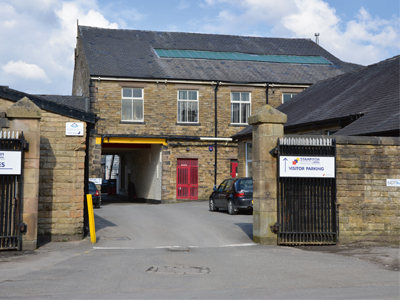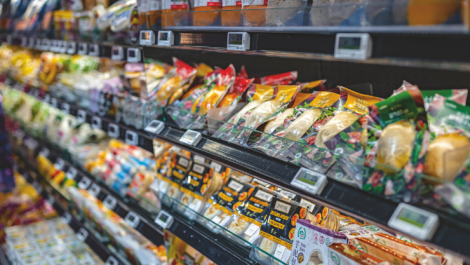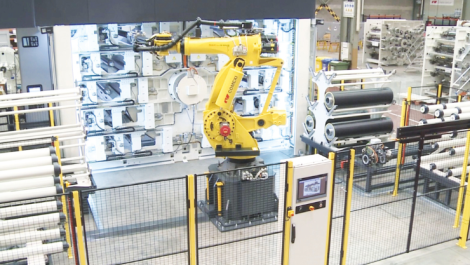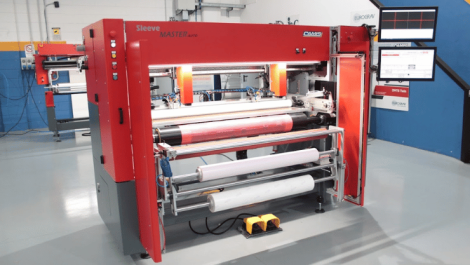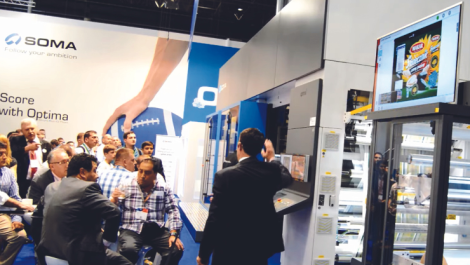Based in Whaley Bridge, Stampiton Labels is amongst the first printing companies in the UK to achieve 100% diversion for landfill under the BPIF and Prismm Environmental ‘Zero to Landfill’ project.
Founded in 1976 and today part of the Klimax Group, Stampiton Labels supplies a wide range of self-adhesive labels (on roll, sheets, fanfold) to a wide range of markets including dairy, stationery, computer, multimedia, office products and logistics, as well as servicing the trade markets with stock A4 and computer labels.
The company has 16 presses available: five flexo, five UV letterpress and six offset litho, offering excellent capacities and flexibility to service the market. Carrying over 1300 lines for next day delivery, it has sophisticated warehousing and distribution systems. In addition, Stampiton has its own in-house coating facility for both hot-melt and a water-based acrylic adhesive laminates.
Prior to signing up to the Zero to Landfill scheme with Prismm, all general waste was deposited into a 35-yard compactor skip that was taken for landfill. This amounted to around 650 tonnes per annum. Now standard operating procedures have been introduced throughout the facility to separate the core-based matrix and set-up waste from the general waste, and this is placed into dedicated containers around the presses. Instead of going to landfill, the waste is now transported directly to a recovery facility, where it is treated and blended with other wastes to become a fuel for the UK cement industries.
Removing the core-based label waste immediately reduced the amount going to landfill by around 60%. The remaining general waste had to be assessed to establish what was preventing it going to an RDF (Refuse Derived Fuel) waste treatment plant. Once this was understood, another standard operating procedure was introduced in the production area to divert these waste streams for further segregation. These are now being recovered or recycled based on their properties.
The end result is that all the remaining general waste is sent for recovery at a waste-to-energy plant, and investigations are ongoing to find even more cost effective treatment/recycling routes. Additionally, hazardous waste, which had been previously, stored onsite and collected infrequently, is now the subject of a regular collection that minimises onsite storage, improves health and safety, and reduces costs.
Stampiton Labels has also been able to achieve cost savings and improve waste flow through the production areas whilst achieving 100% diversion of its waste from the site.
Jon Hutton, sales director at Prismm Environmental, commented, ‘Stampiton has embraced a pro-active approach to its waste management throughout all levels of the personnel structure. The result is an efficient, cost-effective system that is at the top of environmental credibility.’
Mr Hutton continued, ‘Stampiton is taking its environmental leverage a stage further and is now able to actively promote environmental responsibility of its label products with its customer portfolio. These customers often produce large volumes of glassine backing waste, much of which of landfilled, and we are able to ensure they can be 100% recycled at mills in Europe.’
The Zero to Landfill project, founded in 2013 and run by Prismm Environmental on behalf of BPIF labels, is aimed specifically at converting core based label wastes from a landfilled material into fuel. Prismm is currently managing the diversion of around 10,000 tonnes per year from the label printing industry throughout the UK. It has long been an issue that these wastes are landfilled, and with the focus of environmental credibility moving down the supply chain, Stampiton’s commitment is already being recognised.

